Inside Nashville's quest to return centuries-old Mexican artifacts to their home
In the belly of Nashville's Parthenon, a ceramic figure of a hairless dog greets museum visitors with perked ears and a smile.
Most of his story is unknown. An amateur archaeologist likely unearthed him from Mexican soil at some point in the 1900s and illegally brought him to the United States. There is no record of his exact origin or the context in which the Chihuahua-sized figure was found. Vigilant visitors might notice bits of earth still clinging to his teeth.
To Parthenon Director Lauren Bufferd and Registrar and Assistant Curator Bonnie Seymour, a few things are clear about the rotund canine: He, and the other 247 Mexican artifacts that make up the Parthenon's pre-Columbian collection, predate Christopher Columbus' arrival in North America. And they all need to be returned to the country whose history they represent.
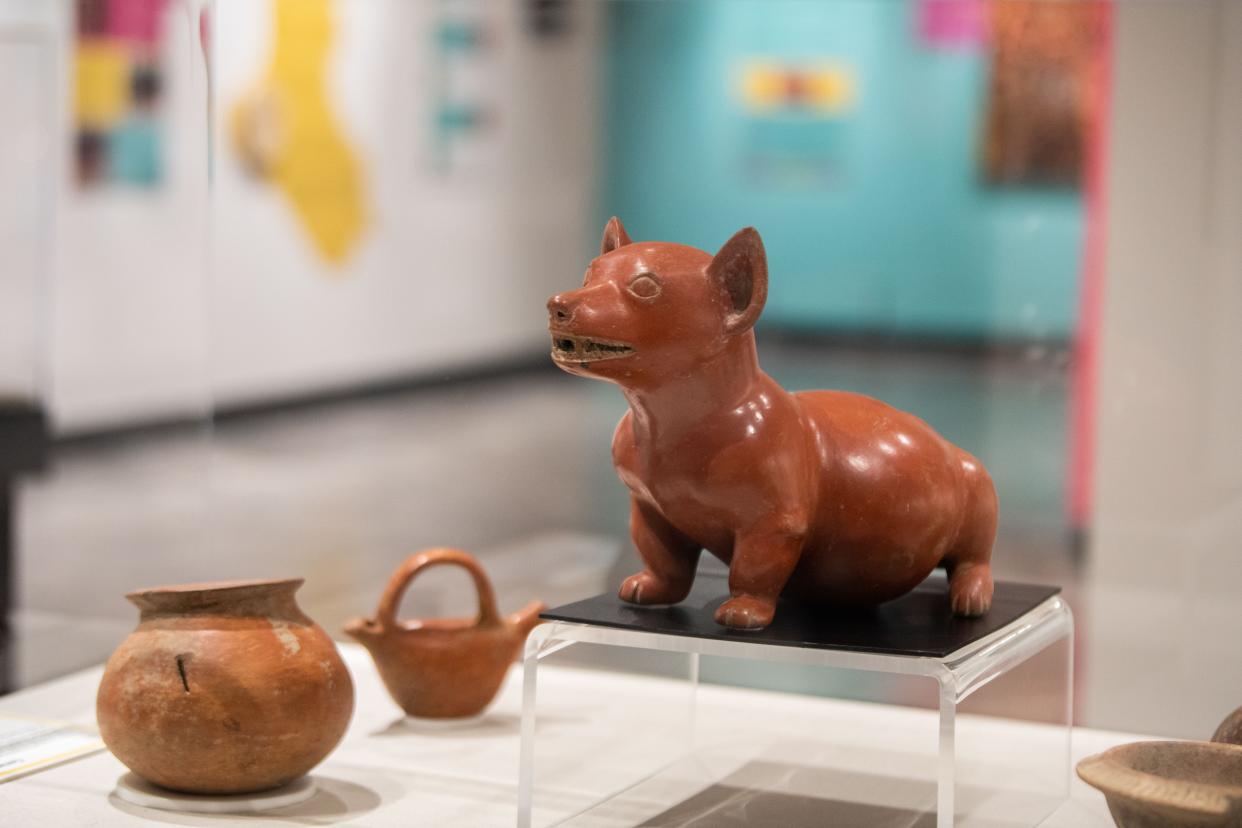
"It's not that unusual a story for museums," said Bufferd, who has worked in museums for more than 30 years. "Most museums have had a version of this somewhere, where you have collectors meeting with directors who are also collectors, and there's not any provenance. We don't really know when (artifacts) are fake or real, were they paid for, were they dug up? We just don't know, and that not knowing ... I think tells you that something is wrong."
The Parthenon, which is owned by Metro Nashville and operated by the city's parks department, received the Western Mexican artifacts from donors John Montgomery and Edgar York in the 1960s and mid-1970s, according to museum records. York's contributions lack any documentation of their origin. Montgomery's hobby excavations are also undocumented.
On Tuesday, Nashville's council will cast its final vote on a piece of legislation that would allow the Parthenon to do what staff have been seeking for the last two decades: remove the artifacts from the museum's permanent collection so they can be repatriated to Mexico.
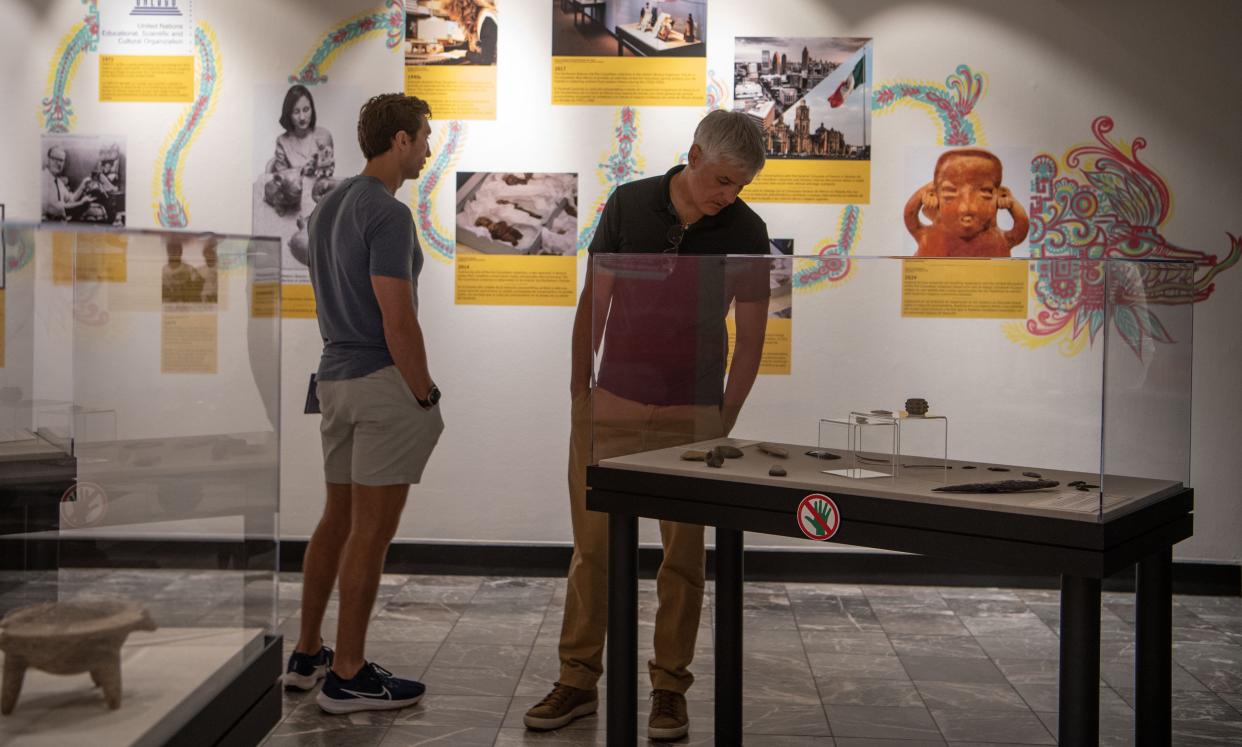
Showcasing living culture and lost history
Seymour began working toward returning the artifacts on her first day at the Parthenon just over two years ago. If the bill passes Tuesday, Seymour and Bufferd can move forward with their effort to return these artifacts to their home country, possibly the first international repatriation from a museum in Tennessee. The Parks and Recreation Board has already approved the artifacts' removal from the Parthenon's collection.
In the meantime, Parthenon visitors can see 61 pieces from the collection and contemplate the concept of repatriation in an exhibit curated by Seymour and other museum staff with support from Nashville's Hispanic community, the Centennial Park Conservancy and a roster of international consuls, arts experts, community leaders and translators from Vanderbilt.
The exhibit features a diverse sampling of the collection. Miniature animal-shaped wind instruments called ocarinas fill one display, while another features effigies resembling people or animals thought to have been used in religious or funerary rituals. Carved obsidian blades, including one once worn on a warrior's forearm for religious ceremonies, fill another case.
Artifacts of hairless dogs, called xoloitzcuintli or "xolo," are often found in graves. They were thought to guard people in life and guide them in death, according to the exhibit. A pot displayed near the ceramic dog has a gash in its side, likely a scar sustained from a trowel during an improper excavation.
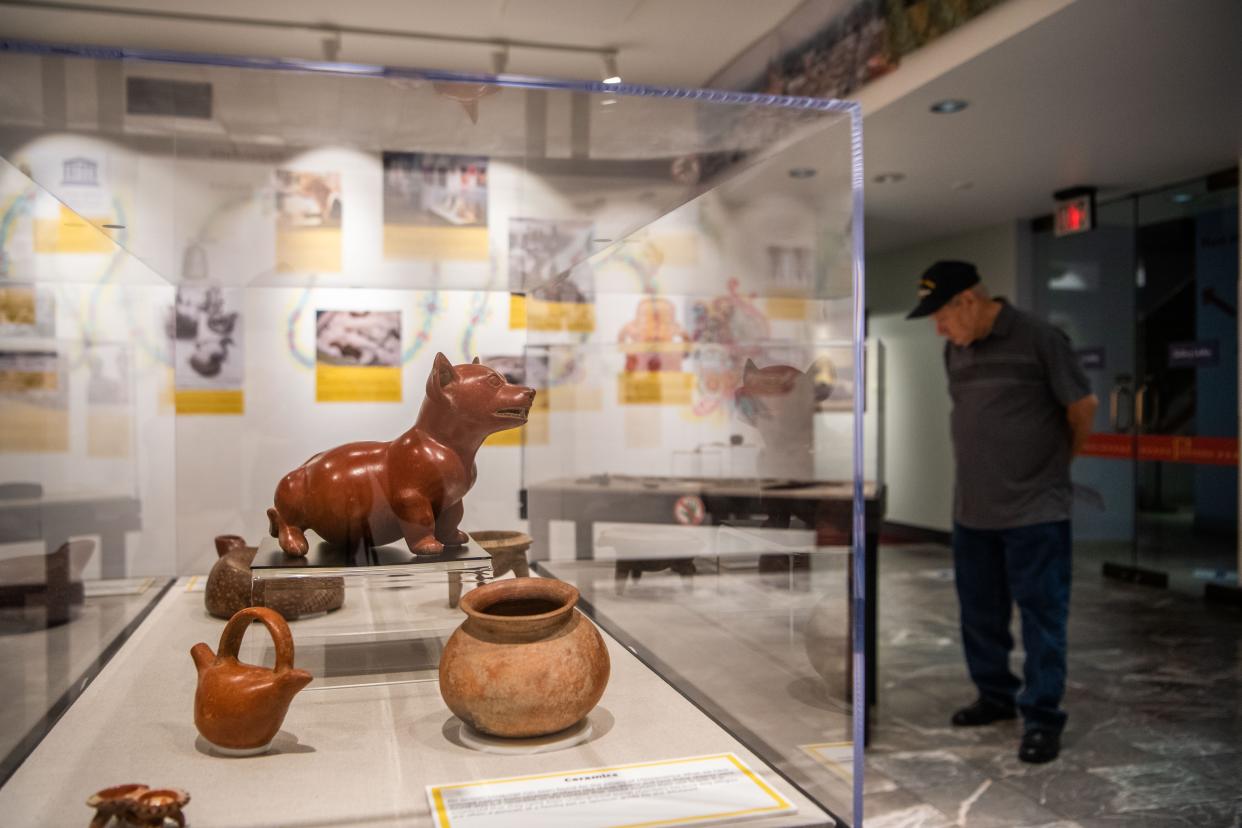
Seymour spent months completing an inventory of the artifacts and searching for information about them. Without records of where each piece was sourced and what was found around them, it is difficult — if not impossible — to fully understand their significance. Seymour, whose focus leans more toward classical history and artifacts, soaked up as much as she could.
"It really is a very colorful, bright, vibrant culture, and unfortunately because pre-Columbian artifacts have been particularly popular for people to take, a lot of Mexican history is missing information," she said. "There are a lot of gaps. ... I can't fix the problem, but I can hopefully help."
Original artwork by José Véra González, a Mexican artist who lives in Nashville, also lines the gallery walls, tying together long-held Mexican traditions with present-day culture. The mixed-media acrylic canvases and panels depict warriors and deities, incorporating pieces and materials crafted in Mexico. A mural features two hummingbirds, representing the souls of two family members who have passed on.
Seymour said she hopes the exhibit shows people the vibrancy of Mexico's living culture and encourages discussion of repatriation as more than an abstract idea.
"There's a deliberateness and meaning to all of it," she said. "It really helps to bring in that soul with people, I think, and let them know this is still a thriving culture, and this kind of thing affects somebody directly."
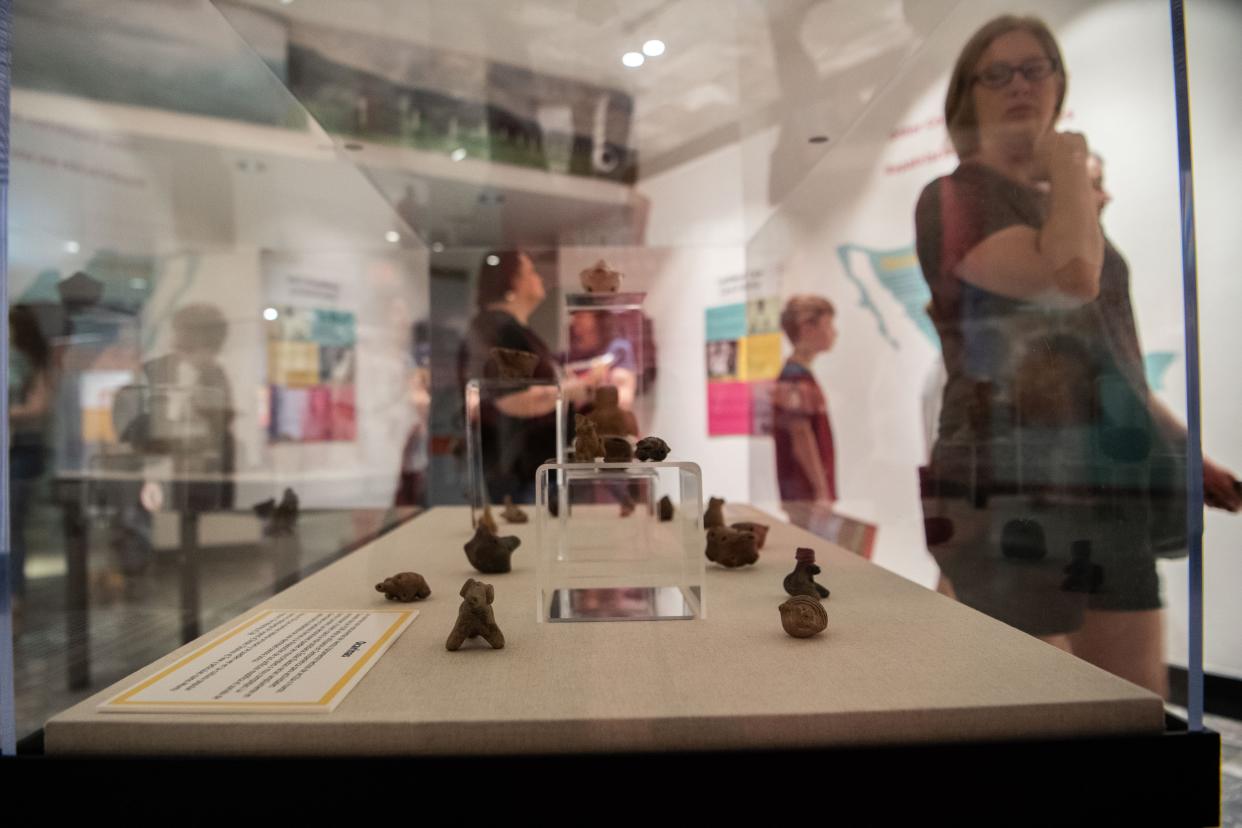
Grappling with repatriation
Seymour's research into repatriation is also showcased in the exhibit through several examples from other museums and countries.
She drew inspiration from the University of Tennessee's McClung Museum, which restructured its "Archaeology and the Native People of Tennessee" exhibit in 2022, leaving exhibit cases empty with written explanations of repatriation and its importance in place of artifacts that had been returned to tribes associated with Knox County.
Should the Parthenon receive final approval, the museum's pre-Columbian collection will be delivered to the Institute of Anthropology and History in Mexico City, something Seymour arranged with the help of a museum and a consulate in Santa Fe, New Mexico, and another consulate in Atlanta.
Once the artifacts are in the hands of the Mexican consulate, Seymour's work will be over — she'll no longer have control over what happens to the artifacts. She hopes the institute will be able to do more research on the items, perhaps narrow down their origins and histories and get them to their proper homes. It's possible, she said, that the collection could be used to start a new museum, but there's also a chance the pieces will be held unseen in storage for years, as many Mexican museums are already bursting at the seams.
In some repatriation cases (not this one, Seymour notes), returned artifacts are reburied according to tradition or allowed to decay as intended under a spiritual belief.
"It's theirs. They made it; they have the right to do what they want with it," Seymour said. That idea is contradictory to a museum's mission, to "preserve and protect, research and educate," she said. "But if you want to respect your fellow human beings, that's what you need to do."
She is exploring using 3D printing to craft replicas of artifacts for education and as a marker of this period in the Parthenon's history.
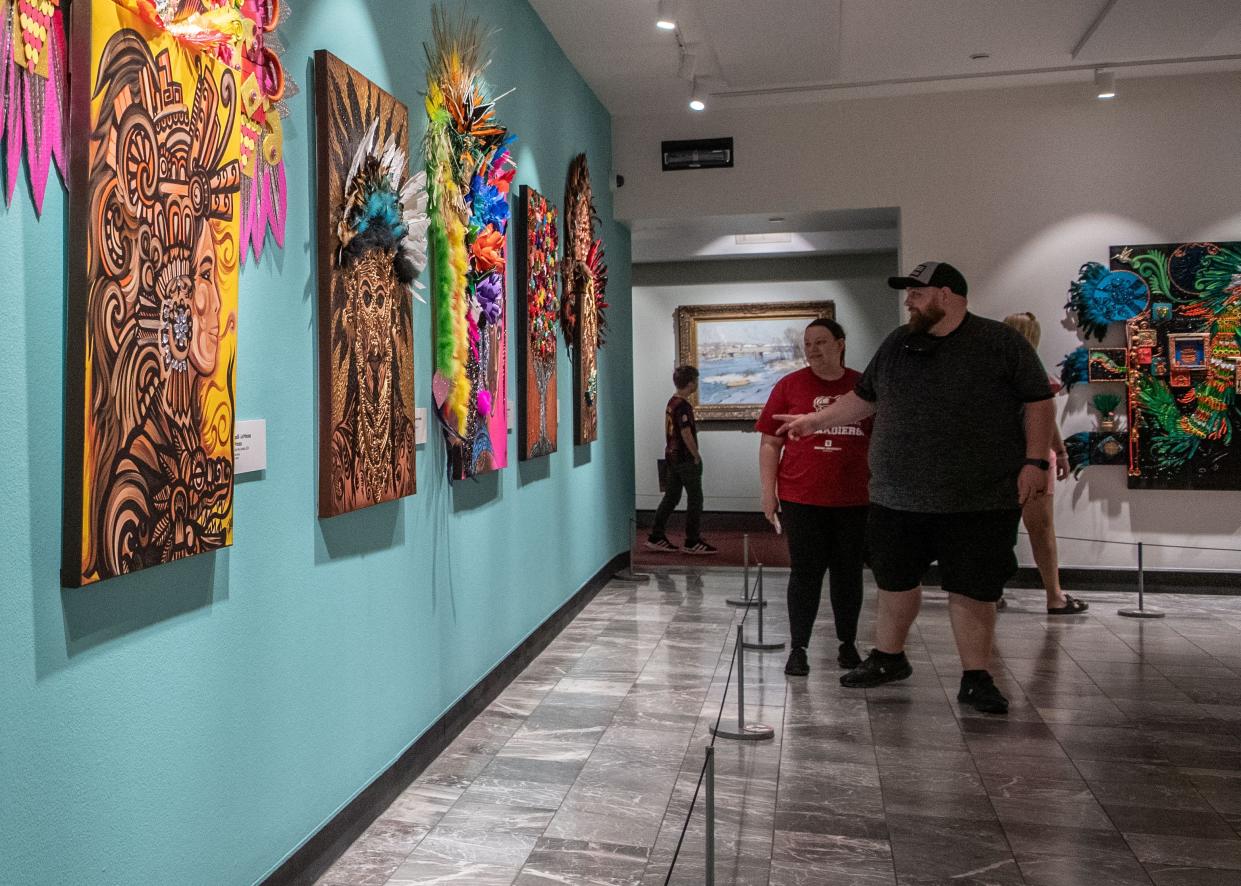
She and Bufferd understand that repatriation is an emotional issue.
"Some people are going to be like, 'Nope, this was in a museum and this is where it needs to stay,'" Bufferd said. "You have complicated responses to things. If you've ever lived your whole life going to museums and you think about the things you saw and the way they influenced you, made you curious, what would your life have been like if you hadn't seen them?"
Slips of paper with written reactions from guests have poured in since the gallery opened on April 19. As of Friday, Seymour counted around 600 responses to questions museum staff posed in their exhibit. She anticipates collecting many more by the time the exhibit closes July 14.
Reactions fall across the spectrum. "Proud that items are being returned to their proper owners to preserve," one slip reads. "Tough to say ... but culture and understanding cannot be known if it stays within its borders," another guest wrote. "I'm not sure honestly," one patron stated.
For Bufferd and Seymour, these slips are encouraging.
"There are huge emotional responses to some of these things, so we've just tried to ask as many questions, use as much primary source material as we could, have some examples of things that have happened all over the world, and then let people (experience it)," Bufferd said. "Then, hopefully they'll leave and they'll continue to talk about it, and the next time they hear about (repatriation), maybe they'll feel some investment."
This article originally appeared on Nashville Tennessean: Nashville Parthenon seeks to repatriate hundreds of Mexican artifacts
